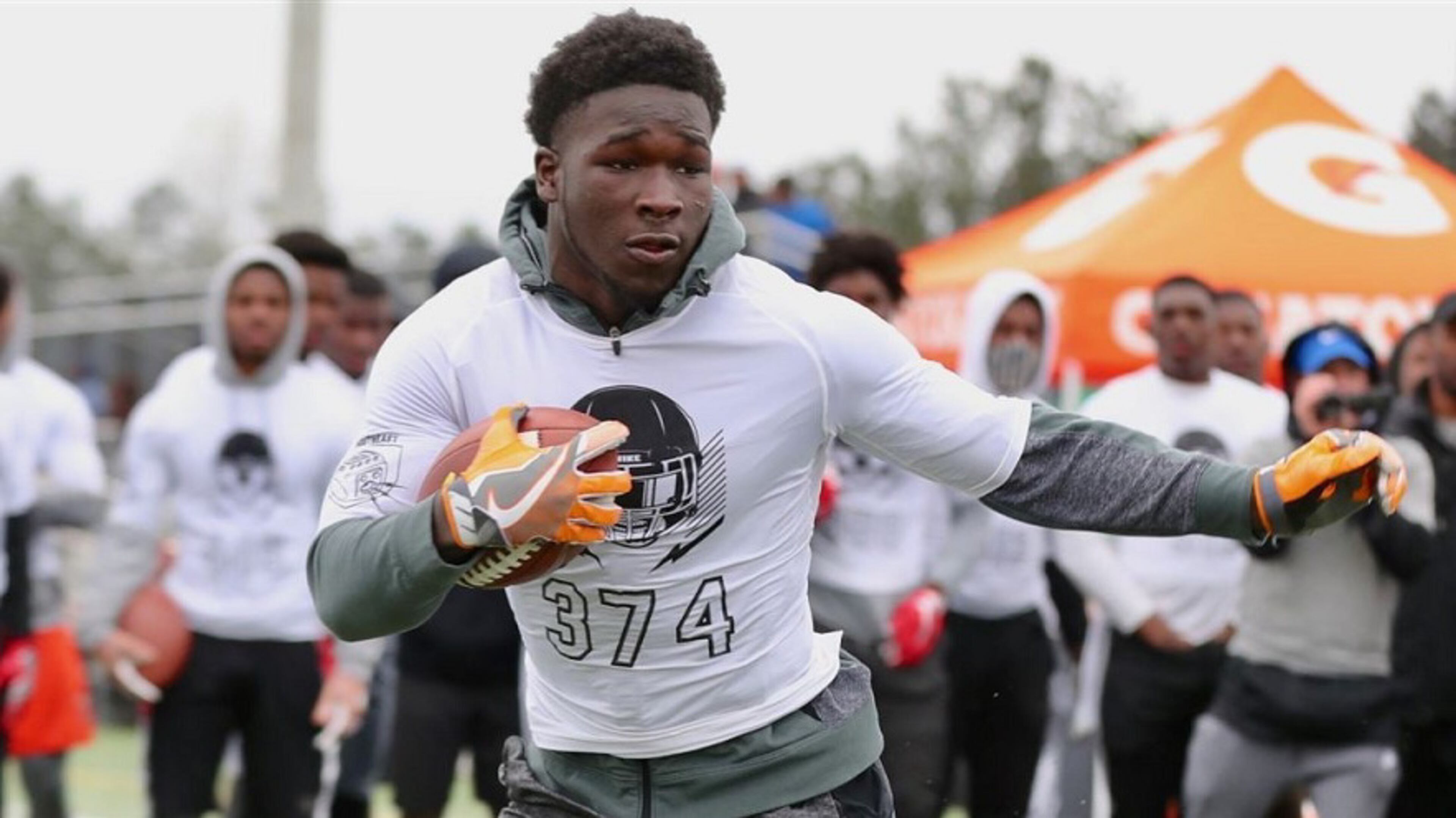Georgia must wait to find who will be its next premier RB

This is the final installment in a nine-part series previewing Georgia's spring football practice, the start of which is uncertain because of the coronavirus outbreak. Today: Running backs | Yesterday: Wide receivers
RUNNING BACKS
Who's gone: Brian Herrien, D'Andre Swift, Prather Hudson
Who's back: James Cook, Zamir White, Kenny McIntosh
Who's new: Kendall Milton
Projected starter: White
ATHENS — Georgia's reputation as "RBU" is long-lived, legitimate and well-earned. For the first time in a while, it's also up in the air coming into a season.
For sure, the Bulldogs have continued to sign some of the premier running backs this country has to offer. But Georgia will enter its spring not entirely sure who its featured back will be or whether any of the backs who might fill that role will be able to carry on the school’s rich tradition at the position.
The candidates are impressive. They’re just not as proven as Georgia’s backs have been heading into spring practice for the past seven years. Over that span, the Bulldogs’ tradition has been more about passing the baton than it has been about beating out the competition and winning the job in practice.
You have to go back to 2012 to find the last time Georgia’s heir apparent at running back was as uncertain as it is this year. And it wasn’t expected to be so unresolved that year.
Isaiah Crowell earned Freshman All-American and SEC Freshman of the Year honors the previous season and emerged from spring practice as the undisputed No. 1 tailback. After Crowell was dismissed following a firearms arrest that summer, there ended up being a wide-open competition in preseason camp. It turned out all right, as a freshman named Todd Gurley beat out Keith Marshall, Richard Samuel and Ken Malcome.
Since then, the transition has gone smoothly from Gurley to Nick Chubb and Sony Michel to D’Andre Swift.
Swift, of course, just left the Bulldogs a year early for the NFL. He upheld his chapter of UGA’s legacy. Despite playing somewhat sparingly as a backup to Chubb and Michel as a freshman and missing significant playing time in his final three games as a junior, he finished his career ranked seventh all-time in rushing (2,885 yards) at UGA, and he caught 76 passes for 666 yards to go with his 25 career touchdowns. He’s projected to be the first running back off the board in April’s NFL draft.
That has left a host of high-pedigree backs vying to be Swift’s successor.

Zamir White qualifies as the back most likely to get the baton next. The 6-foot, 215-pound sophomore known as “Zeus” emerged as Swift’s primary backup toward the end of last season. With Swift extremely limited in the Sugar Bowl because of a shoulder injury and protective of his draft status, the Bulldogs turned to White. He responded with a career-high 92 yards on 18 carries and a touchdown in Georgia’s 26-14 victory.
White finished the season as the Bulldogs’ third-leading rusher (behind Swift and Brian Herrien) with 408 yards on 78 attempts (5.2 ypc) and three touchdowns. The former No. 1-ranked back in high school football also answered any doubts that remained about whether he had regained form after suffering two injuries since the end of his senior season in Laurinburg, N.C.
But White will face a lot of competition in spring practice. James Cook, a rising junior, is Georgia’s most versatile back, with 24 receptions in addition to a career 427 yards rushing and 6.6 yards per carry average. Kenny McIntosh was extremely impressive in limited work as a freshman last season, averaging a team-best 7.0 yards on 25 carries and scoring two touchdowns, including a season-long run of 62 yards.
And in comes Kendall Milton, another sought-after recruit with some 5-star rankings. The 6-foot-2, 216-pound freshman, who rushed for more than 2,800 yards and 40 touchdowns his final two seasons at Clovis (Calif.) High, joined the Bulldogs for bowl practices as an early enrollee and is expected to figure heavily in the competition.
Another back — 4-star prospect Daijun Edwards of Moultrie — will join the group this summer. So, the legacy at Georgia appears to be resting atop strong legs.
If the Bulldogs stick to their script under coach Kirby Smart, none of these backs will be asked to carry an inordinately heavy load. Even though Swift was significantly better than his backfield mates last year, he still finished with only 440 carries over his career. That’s much less than several of the other backs he’ll be competing with for draft position.
Sharing the load remains a cornerstone philosophy for Smart regarding running backs. So, it’s quite possible — and quite likely — the Bulldogs could take a committee approach.
“I want success for each one of those players,” Smart said. “If each one of those backs has success, could you end up where nobody gets 1,000 (yards) and three or four guys get close to 1,000? Yes. But a defense dictates sometimes what we do offensively because we check to certain things, so you can’t control it. It helps if you have guys who are kind of the bell cows, but I’m not past playing four backs.”
Again, the unknown factor is how new offensive coordinator Todd Monken will want to utilize running backs. While his reputation is for producing an explosive passing attack, he's typically done it with some strong running game mixed in. Joseph Randle had 2,633 yards rushing and 38 touchdowns across Monken's two seasons as offensive coordinator at Oklahoma State, plus another 71 receptions for 490 yards and two scores. In his final season as the Southern Miss head coach, the Golden Eagles had two backs top 1,000 yards rushing.
Smart himself insists he doesn’t really know.
“I can’t honestly say right now,” he said last month. “I think everybody wants to hear some grand speech about opening this up and doing that. What you need is to be productive offensively, score points and (produce) explosive plays.”
Odds are, the running backs will be intimately involved in making that happen. At Georgia, they always have been.
THE SERIES
Monday: Special teams
Tuesday: Defensive line
Wednesday: Linebackers
Thursday: Defensive backs
Friday: Offensive line
Saturday: Tight ends
Sunday: Quarterbacks
Today: Wide receivers
Tuesday: Running backs



